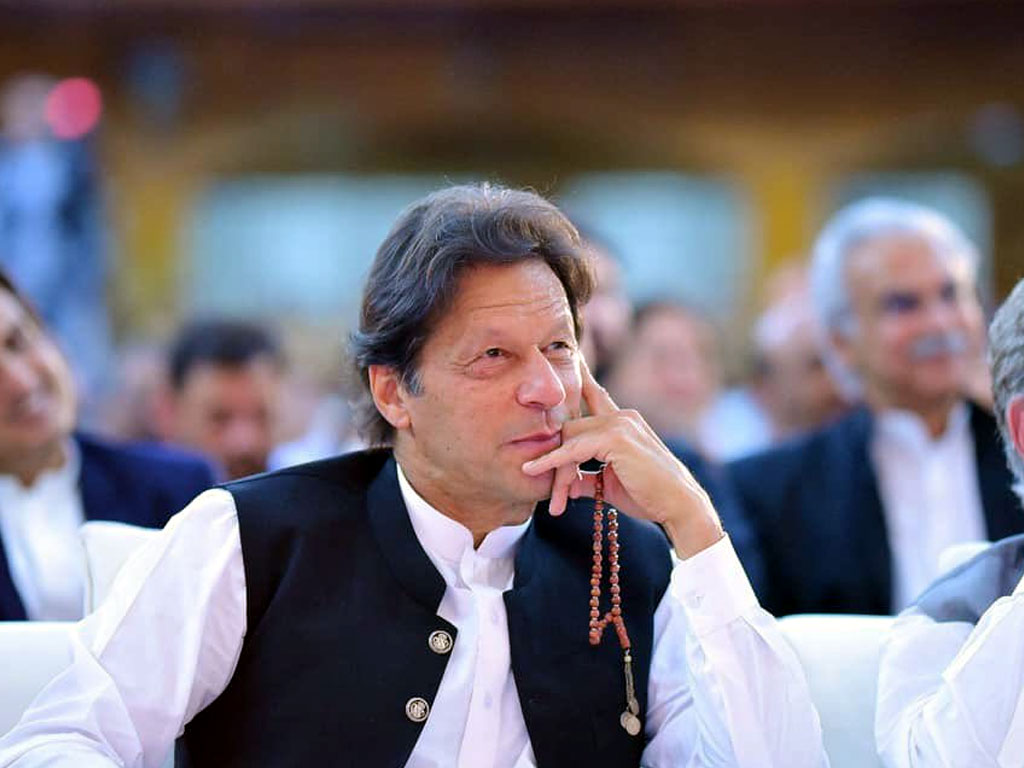In recent weeks, the Chief Justice of Pakistan has found himself at the center of a storm of controversy, facing criticism and condemnation from various religious parties across the country. The reasons behind this unprecedented targeting of the highest judicial authority in Pakistan are multifaceted, reflecting deep-seated tensions within the country’s political and social landscape.
Background
The current Chief Justice of Pakistan, as the head of the judiciary, holds significant power and influence in shaping the legal framework and dispensation of justice within the country. Throughout Pakistan’s history, the judiciary has played a pivotal role in mediating conflicts between various stakeholders and upholding the rule of law.
However, the recent actions and decisions of the Chief Justice have sparked outrage among certain religious parties, leading to protests and calls for his resignation. These parties accuse the Chief Justice of overstepping his authority, making decisions that they perceive as contrary to Islamic principles, and allegedly favoring liberal and secular agendas.
Controversial Rulings
Several rulings by the Chief Justice have drawn ire from religious parties, fueling the current controversy. One such ruling involved the Chief Justice’s support for the rights of religious minorities, including the protection of their places of worship and ensuring equal treatment under the law. While lauded by human rights activists and proponents of religious tolerance, this stance has been vehemently opposed by conservative religious groups who advocate for a more rigid interpretation of Islamic law.
Additionally, the Chief Justice has taken a firm stance against religious extremism and militancy, ordering crackdowns on banned extremist organizations and calling for stricter enforcement of anti-terrorism laws. While these measures are aimed at maintaining peace and stability within the country, they have faced opposition from hardline religious elements who view them as an attack on their ideological beliefs and freedom of expression.
Political Interference
The controversy surrounding the Chief Justice is also emblematic of broader political tensions within Pakistan. The judiciary, as an independent branch of government, is often seen as a check on executive and legislative power. However, accusations of political bias and interference have been leveled against the Chief Justice, with some alleging that his decisions are influenced by external political forces.
Moreover, the timing of the controversy is significant, coinciding with the lead-up to national elections. Political parties, including religious ones, may be leveraging the issue to mobilize their support base and gain electoral advantage.
The targeting of the Chief Justice of Pakistan by religious parties reflects the complex intersection of religious, political, and legal dynamics within the country. While the Chief Justice’s rulings may be perceived as progressive by some, they have triggered a backlash from conservative religious groups who view them as a threat to their traditional values and beliefs.
As the controversy unfolds, it underscores the delicate balance between upholding the principles of justice, protecting minority rights, and navigating the complexities of Pakistan’s socio-political landscape. Ultimately, the resolution of this controversy will have far-reaching implications for the future of democracy, rule of law, and religious freedom in Pakistan.
Shocking Revelation: Siraj ul Haq Exposes Explosive Reasons Behind Religious Parties’ Attack on Chief Justice of Pakistan!
In a riveting turn of events, Siraj ul Haq, a prominent political figure in Pakistan, has lifted the veil on the tumultuous saga surrounding the Chief Justice of Pakistan’s contentious relationship with religious parties. With fiery rhetoric and startling revelations, Haq has shed light on the underlying motives driving the relentless assault on the highest judicial authority in the country.
Unveiling the Truth
In an exclusive interview, Haq delved into the heart of the matter, unraveling a web of intrigue and political machinations. According to Haq, the religious parties’ ferocious attack on the Chief Justice stems from a deep-seated fear of progressive legal reforms and a perceived threat to their conservative ideologies.
Haq elucidated that the Chief Justice’s unwavering commitment to upholding the rule of law and safeguarding the rights of religious minorities has irked the religious parties, who view his actions as a direct challenge to their traditional power structures. Moreover, Haq alleged that certain political entities are exploiting religious sentiments for their own gain, using the Chief Justice as a scapegoat to galvanize support and consolidate their political base.
The Battle for Ideological Supremacy
At its core, the clash between the Chief Justice and religious parties represents a battle for ideological supremacy within Pakistan’s legal and political landscape. The Chief Justice’s progressive rulings and steadfast stance against religious extremism have placed him at odds with conservative factions seeking to maintain their grip on power.
Haq underscored the urgent need for a nuanced understanding of the complex interplay between religion, politics, and the judiciary in Pakistan. He emphasized the importance of protecting the independence of the judiciary and ensuring that legal decisions are guided by principles of justice and equality, rather than political expediency or religious dogma.
Navigating a Path Forward
As Pakistan grapples with mounting tensions and polarization, Haq called for a return to dialogue and mutual respect among all stakeholders. He urged religious parties to engage in constructive discourse and refrain from resorting to inflammatory rhetoric or violence in pursuit of their objectives.
Furthermore, Haq emphasized the role of civil society, media, and international observers in holding the government and judiciary accountable and safeguarding democratic principles. He stressed the importance of transparency and accountability in decision-making processes to foster trust and confidence among the populace.
Conclusion
In conclusion, Siraj ul Haq’s revelations have provided invaluable insights into the complex dynamics underlying the controversy surrounding the Chief Justice of Pakistan. As the nation grapples with the ramifications of this unprecedented conflict, Haq’s call for dialogue, understanding, and respect offers a glimmer of hope for a peaceful resolution to the crisis. Only through collective action and a commitment to justice and equality can Pakistan navigate its way forward toward a brighter, more inclusive future.

